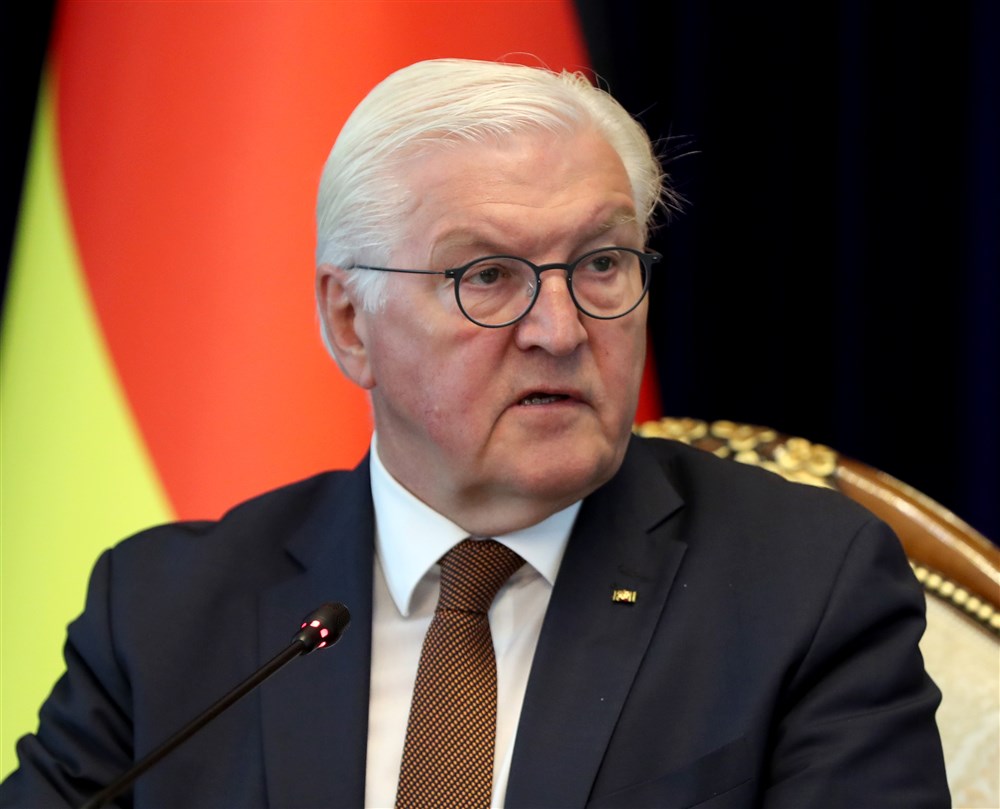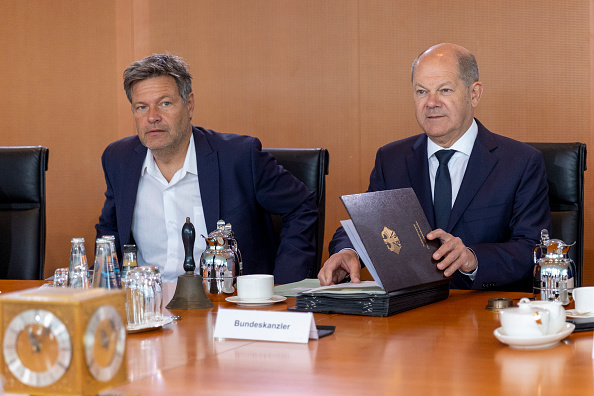The US decision to send cluster bombs to Ukraine has caused divisions within the European Union, with many officials expressing their displeasure at the move.
Some lawmakers have tacitly backed the intention of US President Joe Biden’s administration to send the munitions, with Germany’s President Frank-Walter Steinmeier saying his country should not resist the deliveries.
That is despite the fact that Germany has signed up to an international treaty banning the weapons.
Politicians in Brussels, meanwhile, have been less shy about sharing their unease over the issue, with left-wing MEP Mick Wallace saying the move will bring “more misery to the Ukrainians than to anyone else” before calling on the UN to “stop this madness”.
Representatives on the Right have also lashed out at the decision, with MEP Gunnar Beck of the German AfD party saying he “regrets” the US plan.
“This will lead to more escalation in the Russian-Ukrainian conflict and to more losses of innocent lives,” the parliamentarian told Brussels Signal.
“We need policies to de-escalate the conflict and end the war as soon as possible,” he added. “This decision achieves exactly the opposite.”
Some within the European Commission also appear to have been made uncomfortable by the White House’s move to deliver the munitions.
Speaking to Brussels Signal, an EC spokesperson said that, while Brussels was “aware” of the US plan, it was ultimately an issue between Ukraine and the Biden administration.
“In general, we support the delivery of munitions that Ukraine needs to defend itself,” the spokesperson said. “The EU has adopted a large package of support for the delivery of ammunitions.”
EU sources privately seemed far more uneasy about the decision, emphasising that although some European nations had not signed up to the international Convention on Cluster Munitions, which bans the weapons, the EU as a whole supported the agreement’s goals.
“Within the EU, not all Member States are party to the Convention,” said the sources. “However, the EU has consistently supported the humanitarian aims of the Convention.”





